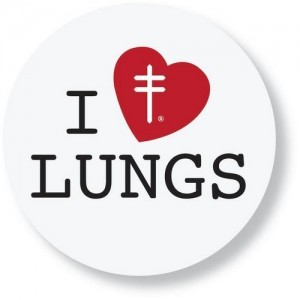 The dangers of radon are discussed quite a bit, along with the environmental and health impact of the deadly gas. However, it’s not often that you hear from actual lung cancer victims. This is primarily due to the fact that lung cancer has an extremely high mortality rate, because it’s often not diagnosed until late stages of the disease. There are no short term symptoms of radon poisononing or lung cancer. By the time victims experience symptoms associated with the disease it’s already passed beyond a curable state.
The dangers of radon are discussed quite a bit, along with the environmental and health impact of the deadly gas. However, it’s not often that you hear from actual lung cancer victims. This is primarily due to the fact that lung cancer has an extremely high mortality rate, because it’s often not diagnosed until late stages of the disease. There are no short term symptoms of radon poisononing or lung cancer. By the time victims experience symptoms associated with the disease it’s already passed beyond a curable state.
The Lung Association of Nova Scotia is trying to get lung cancer survivors, or families of those affected to reach out and share their personal experiences. They’re having a hard time doing that because of a stigma that seems to be associated with the disease. Many affected by lung cancer believe they did it to themselves, because a lot of them smoke.
Lung Cancer Survivors are Often Stigmatized
Robert MacDonald’s father passed away in 2011 after a battle with lung cancer. He says that even though many were very supportive about the problem – including doctors, and their community – his father actually blamed himself.
“You know, [to the point] where I did this to myself after many years of smoking.”
Tobacco smoke isn’t the only cause of lung cancer, however. In many cases it simply increases the risk of the disease, along with several other factors. When exposure to radon and tobacco smoke go hand in hand, that risk increases exponentially.
Louis Brill, the president and CEO of the Lung Association of Nova Scotia pointed out one of the most common factors in lung cancer, which is exposure to the deadly gas radon.
“We know radon gas, which is prevalent in Nova Scotia, is the second leading cause of lung cancer. We’re all aware of tobacco use being the number one cause, but for us it doesn’t matter.”
Brill and his association say they want to hear from lung cancer survivors and those who have been affected by the disease.
“We want to stop, ask questions, and listen so that their experience can help guide us to make sure that we’re on the right track, that we’re identifying the needs.”
Lung Cancer Survivors Can Share Their Personal Experience to Help
The real concern is that it can be prevented easily if people are made aware of the problem more often. While smoking is not easy to stop, it can certainly be done. As for radon, homeowners just need to conduct a simple and inexpensive test to find out if there are elevated levels inside their home.
Believe it or not, lung cancer is actually the leading cause of death in Nova Scotia. The disease claims the lives of about 700 residents every year, more than breast, prostate and colon cancer combined.
Brill says that the association is trying to figure out how to make this information more accessible.
“[…]How do we couple that information? How do we provide it so that it’s easy to access?”
As for McDonald, he began working for the Lung Association after his father died. He shares his own personal experience with others, to help raise awareness about lung cancer. He also says it’s important for other who are affected by the disease to share.
“Just knowing what families go through, you know, the devastation that a disease like this can bring on a family, letting people know that make decisions, what kind of comforts…or how to maneuver through the system.”
If you, or someone you know has been affected by lung cancer please feel free to reach out and share your experience. You can do so through the local Lung Association department, or here.
Via: CTV News Atlantic


